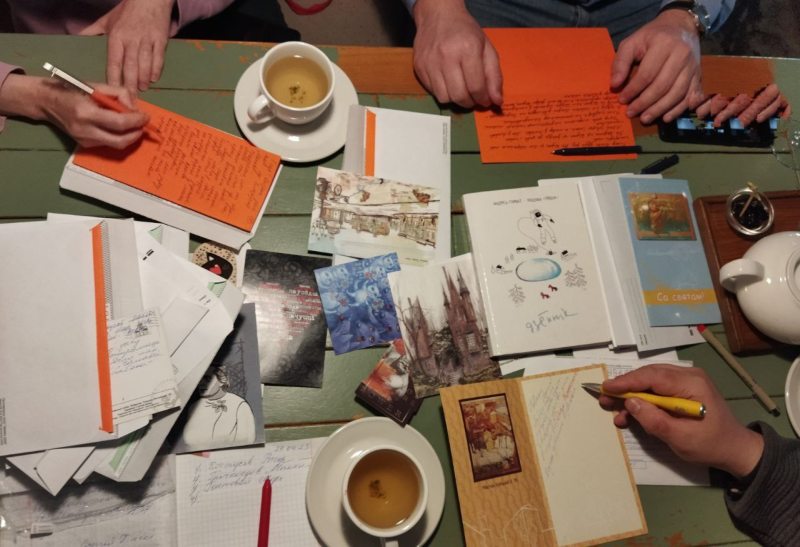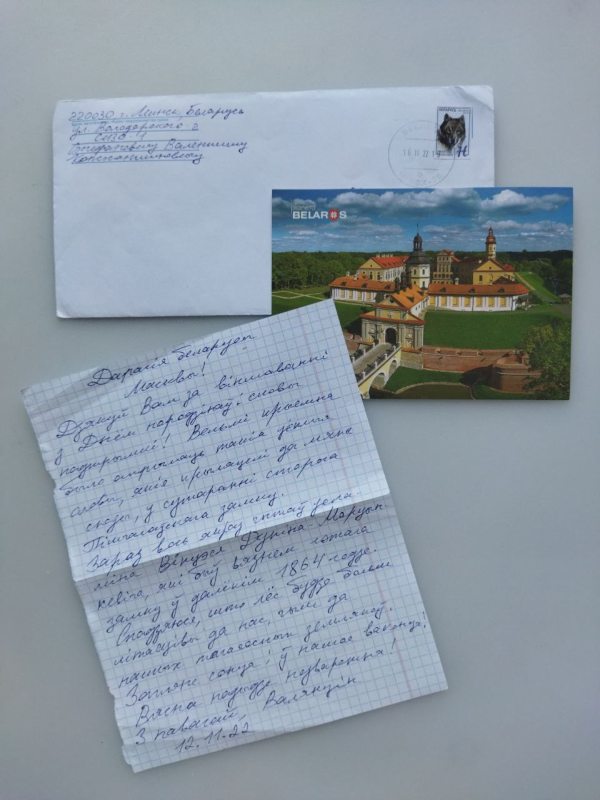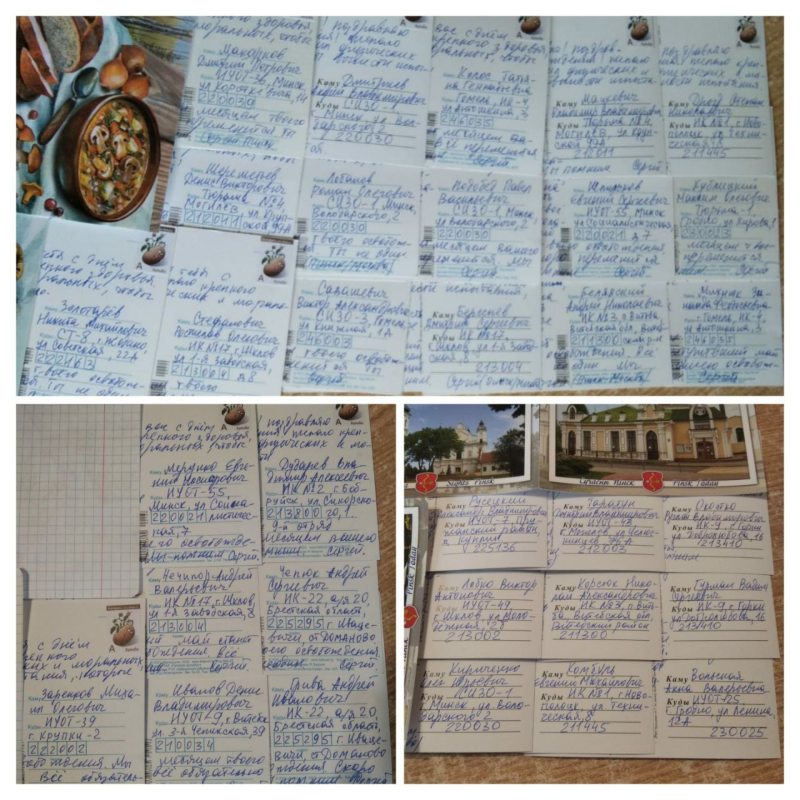Belarusians in Moscow unwavering in support for political prisoners
For a year and a half, Belarusians living in Moscow have been sending well-wishes to political prisoners in Belarus. They do this every week and show no signs of stopping. Natallia, a representative of the Belarusian diaspora in Moscow, spoke with Viasna about where their motivation comes from, how they celebrate the birthdays of political prisoners, and the responses they receive.
Motivation

- Photo provided by Belarusians in Moscow.
“For me, it was important to remember my fellow countryman Vitold Ashurak,” says Natallia. “To honor his memory and to remind myself and others that this loss and sacrifice was not in vain. This motivates me to do something for my native Belarus.”
Natallia also has other motivations. She feels compelled to take action:
"Because if I'm not doing something for our common cause, it becomes tough to read news from Belarus. It's impossible just to read every day and not think about the victims there, the hardships those in prison are experiencing, those who are tortured, and those who are arrested for using emojis. I didn't want to stay on the sidelines. I wanted to remember that our task is not yet complete, that a free Belarus is on the horizon.”
Celebrations
On average, Belarusians in Moscow manage to send greetings to between 30 and 80 political prisoners a month. In addition to the greetings, some participants may write a longer letter.
“In the letters, we include lines from different poets' poems and insert postcards. But it's not always possible to write long letters. For example, when we sign 15–20 envelopes, we definitely also write 3–5 letters. Sometimes we take one double-sided postcard and sign it with a few lines from each participant, creating a communal greeting on one card.”
Responses
About thirty return envelopes have been collected so far, indicating that the political prisoner is no longer held at the given address or has moved to another institution. Or even released.
The most notable replies came from Artsiom Laski, politician Mikalai Statkevich (the response arrived in January 2022), and Viasna member Valiantsin Stefanovic (received in November 2022).
“Valiantsin wrote that he read Dunin-Marcinkievič [Belarusian writer, poet, one of the founders of the modern Belarusian literary tradition—translator’s note], a former prisoner of the same castle where he is now held (as of the letter's receipt) — that is, in Valadarka, the old Pishchalauski Castle. He also sent a postcard with the Nyasvizh Castle. And he ended the letter with the words, 'The sun will peek into our window' and 'Spring will inevitably come,' ” Natallia recounts.

- Valiantsin Stefanovic's response to Belarusians in Moscow.
At the weekly signing events, Natallia always brings the responses from political prisoners:
“Those who come to the signings read them—and everyone is pleased that we are receiving responses.”


















